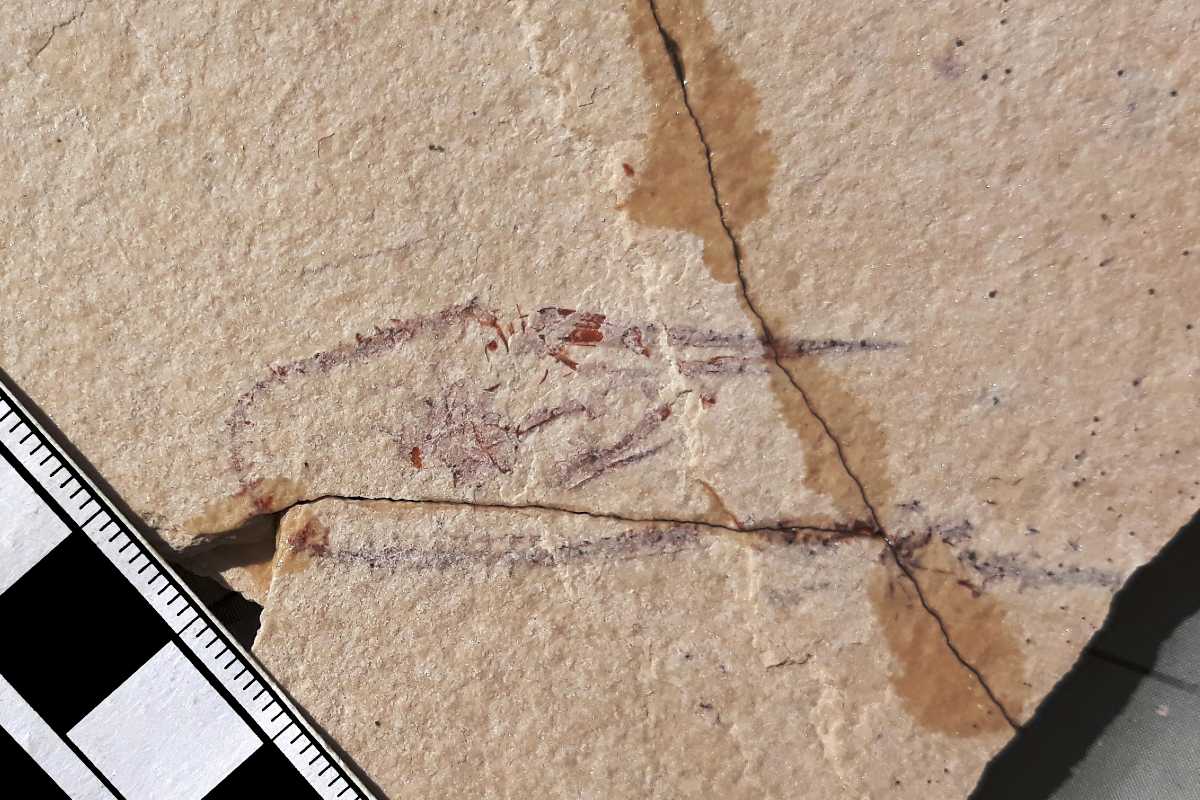
One of several well-preserved marine fossils unearthed in Southern Italy. Photo credit: Ilaria Paparella
A team of University of Alberta paleontologists have discovered a veritable hotbed of well-preserved fossils nestled amongst the vineyards of Southern Italy in a town called Nardò.
Following the exciting discovery of a marine lizard in 2018, found with muscles and skin preserved, paleontologists worked with local museum Museo della Preistoria di Nardò (MPN) to perform a second excavation—and their findings are impressive.
“During the new fieldwork, we found more than 20 specimens of fossil fish, one turtle, some lizard bones, as well as many invertebrates, including sea urchins and crustaceans,” explained Ilaria Paparella, PhD student in the University of Alberta’s Faculty of Science. “This, combined with more than 50 specimens already housed at the MPN, will fuel our research for years and pushes us to pursue this project with optimism and enthusiasm.”
While the research is currently at a preliminary stage, the research team noted that the scientific value of this discovery is much more than the sum of its individual specimens.
“All these fossils together are important not just as single discoveries, but also to reconstruct the environmental and climatic conditions at the time these animals lived, which is about 70 to 75 million years ago,” added Paparella, who is conducting her PhD studies under the supervision of Michael Caldwell, paleontologist and professor in the Department of Biological Sciences.
The site is located on an inactive stone quarry, owned by Italian national Professor Anna Lena Manca. Together with Manca and the MPN, the UAlberta scientists are breaking new ground in the region. “Fossil fieldwork in Italy is not very common, and some of the best paleontological discoveries have happened by chance,” said Paparella. “The lack of knowledge is clearly not due to a lack of fossil material but simply to the lack of research. Nobody was looking for fossils, and now we are.”
In fact, she explained, plans for the next season of fieldwork in 2020 are already underway.
“We want to continue this project and make sure that this amazing locality is known for its scientific and cultural value to the international community,” added Paparella. “Rock deposits with such a high degree of preservation and incredible fossil abundance are rare and extremely important to increasing our knowledge about life in the past on our planet.”
This research is conducted in collaboration with Angelo Cipriani, geologist and former postdoctoral fellow at the Sapienza University of Rome in Italy. This fieldwork was supported by the Natural Sciences and Engineering Research Council of Canada (NSERC).
The Faculty of Science’s paleontology program is ranked among the top three in the world, according to the 2018 Center for World University Rankings. Want to learn more about the world-class paleontology research happening at UAlberta? Check out our paleontology hub to learn more.